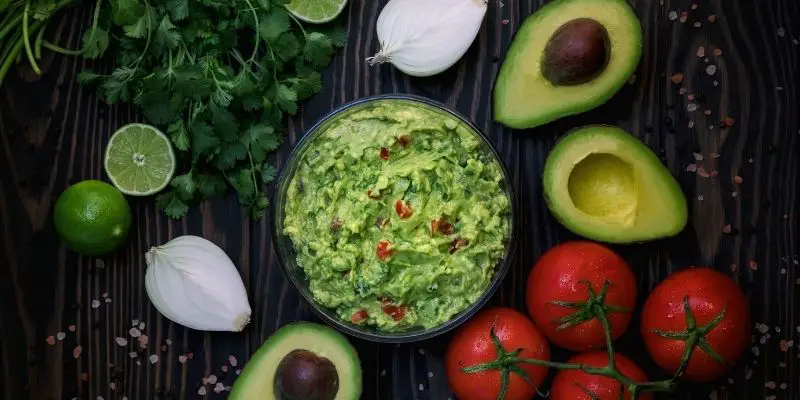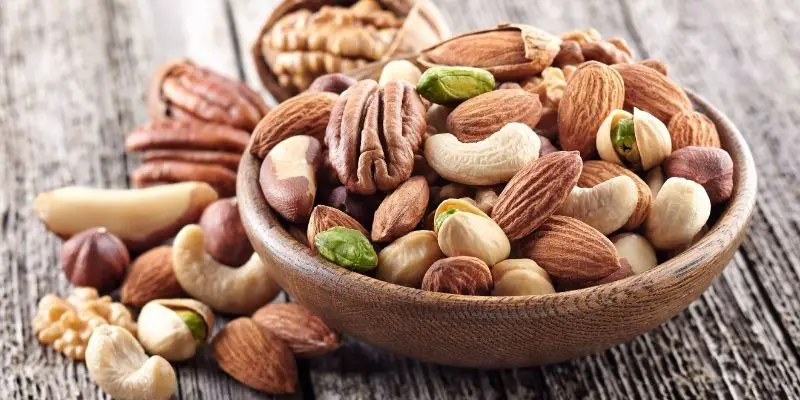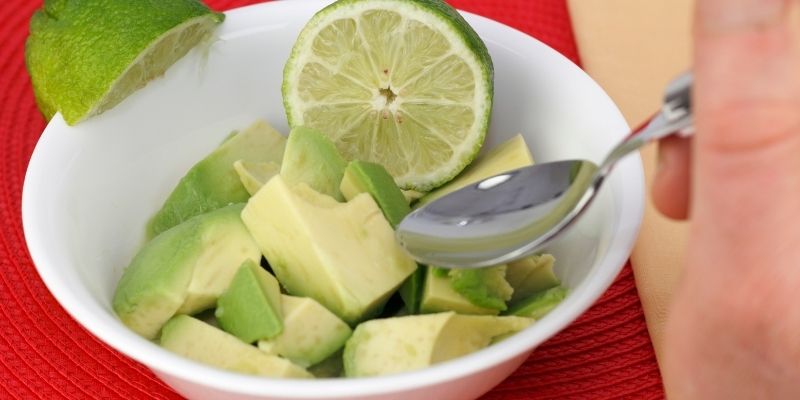Is It OK to Have No Appetite on Keto? And What are the Reasons for It?

People start the keto diet for various reasons. Some want to lose weight, others want more energy and mental clarity. And yet other people take the keto diet as a medicated diet to treat epilepsy. But one thing people don’t really expect is the feeling of having no appetite on a ketogenic diet.
In this article, I will target some of the most commonly asked questions on keto and appetite. Is it normal to have no appetite on a ketogenic diet? How can you start feeling full-on keto? Keep reading to answer your questions.
Do you have a particular question about having no appetite on keto? Then use the table of contents below to jump to the most relevant section. And you can always go back by clicking on the arrow in the right bottom corner of the page. Also, please note that some of the links in this article may be affiliate links. For more details, check the Disclosure section at the bottom of the page.
How does keto suppress appetite?

Most diets call for caloric restriction. We reduce our portions and do rigorous calorie tracking on apps like MyFitnessPal. But have you noticed that after a few weeks, your appetite goes through the roof? You find yourself bingeing on foods you don’t even like. You ruined your progress, and you start gaining weight instead.
Let me explain how this works: Our bodies have an instinctual survival mode activated when our fat reserves are threatened. If you reduce your caloric intake while on a diet, your body will start using your fat reserves. But it doesn’t want to use those fats – they are essential reserves for emergencies!
What happens next is that your appetite increases, and you start eating tons of food that make you gain weight and add to the fat reserves.
Tip from the editor: If you are on keto and CRAVING for fresh fluffy bread and thin pizza crust bursting in flavor or any type of “carby” food, don’t miss out on this gem-packed little book of recipes. Bread, sandwiches, pizzas – you can have it all on keto if the recipe is right.
However, when you are on keto, your body does not react the same way. On the ketogenic diet, you lose weight due to the ketosis process. Ketosis is triggered when blood glucose levels are low. This is because of the limited amount of carbs that you eat on the ketogenic diet. Your body heads over to the fat reserves and produces ketones that are used to fuel your body.
The awesome thing is that the body doesn’t feel like the fat reserves are threatened on keto. After all, you are eating a high-fat diet. That’s one of the ways keto suppresses appetite. And that’s why you suddenly have no appetite on a ketogenic diet.
Other than that, studies show that eating a ketogenic diet controls the hunger hormone, also known as ghrelin. Ghrelin causes the brain to feel hunger. Additionally, ketosis influences the production of another hormone called CCK or cholecystokinin, a hormone that makes you feel full.

Why am I feeling hungry but have no appetite on keto?
You might be going through one of the natural stages of progression in the ketogenic diet. The ketogenic diet is a lifestyle change. And it means the way your body works is going to change. Your appetite will first increase, then decrease, and finally, it will balance out.
If you are feeling hungry but have no appetite on keto, I suggest you take it slow. Do what your body tells you to do. However, be sure to get in your recommended daily calories, 2000 for women and 2500 for men.


Is it normal to not have an appetite on keto diet?
Yes. When I first went on the keto diet all those years ago, I noticed a significant decrease in appetite. Like many people, I felt weird because I was used to feeling hungry all the time and being addicted to eating three meals and several snacks throughout the day. I literally had no appetite on keto when I first started.
Most keto dieters will go through three phases while on the ketogenic diet. Here is how I felt in these three phases:
Are you stuck on keto? The between success and failure on this diet is lack of planning! And this plan has guided over 416,387 people to their dream weight goal. Will it work for you? Grab it here.
Phase 1 – Increased appetite
When you first start the ketogenic diet, the body is in panic mode. It wants those carbs that it likes to use for energy. Your brain screams at you to eat more than the standard amount of carbs to remain in ketosis, which is 20-50g depending on your metabolism. You just have to grit your teeth and get through this phase. After some time, your body gets used to not eating carbs.
Phase 2 – Reduced appetite

The second phase when starting the ketogenic diet is a sharp decrease in your appetite. You are not hungry on keto anymore. After 2-3 weeks, you realize that you didn’t remember to eat. At some point, you start feeling like you don’t even like eating food. You have no appetite on keto. But this is completely fine. I suggest you set reminders on your phone to eat. Choose calorie-dense foods that will both fill you up and give you the energy to get through the day.
Phase 3 – Regular appetite returns
After these highs and lows, your appetite will soon be back to normal. Give it a week or two after phase 2 to get into the rhythm of the keto diet. Your loss of appetite keto phase will go away. Personally, my appetite didn’t go back to being ravenous like before I started the keto diet. I learned to treat food as fuel and not as a coping mechanism (and I used to binge eat sweets to deal with stress). Now I eat with the intention of feeling full-on keto – but now I don’t go overboard like I used to before.

How to feel full on keto even if you are not feeling hungry?

If you are not feeling hungry on keto, rest easy knowing that it is a normal part of being on the keto diet. Many of us are used to eating carbohydrates that fill us up. Think about all your favorite foods: rice, bread, pasta, and of course, cake. When you take those out of the daily diet, there is little room to feel full. Because suddenly, you are not giving your body the carbs it needs. This can lead to loss of appetite: keto induced.
To feel full, target foods that have high-fiber and high-fat profiles. Fiber helps to fill you up while keeping you well within ketosis. Here is a list of foods that will keep you feeling full-on keto:
- Almonds
- Chia seeds
- Sauerkraut
- Olives
- Guacamole
Also, make sure to eat protein. Protein can be found in both animals and plants as well. But since I am vegan keto, I get my protein from beans, tofu, nuts, seitan. They keep me full, and I don’t get hungry on keto at all.

I am not hungry on keto. Should I still eat?
Yes. Even when you are not hungry on keto, you need to eat. Your body needs food to power itself. It’s never a good idea to skip out on meals. Food is not only for providing energy to move and use our brains. It also provides nutrients like vitamins that protect our immune system. Not eating can deliver a blow to your immune system. You might get sick if you don’t eat nutritional foods.
That’s why I don’t support lazy keto. This is a type of keto dieting where someone doesn’t eat healthily. They stick to a high carb, low-fat diet, and yet they eat unhealthy foods all day long. They eat lots of cheese, meats, and high fatty foods, without many avocados, broccoli, and other healthy plant foods.
Thanks for the graphics: Canva.com

Disclosure: At vegketodiet.com I only mention the products that I researched and considered worthy. But it’s important to note that we are a participant of several affiliate programs, including but not limited to VigLink and Amazon Services LLC Associates Program. As an Amazon Associate, this website earns from qualifying purchases. Also please note that I am not a doctor. As such readers are strongly recommended to make decisions that might affect their health by doing their own research. At vegketodiet.com I only document and describe thoughts, researches and ideas that proved to be working for me.

